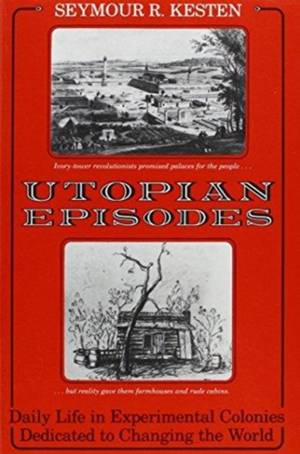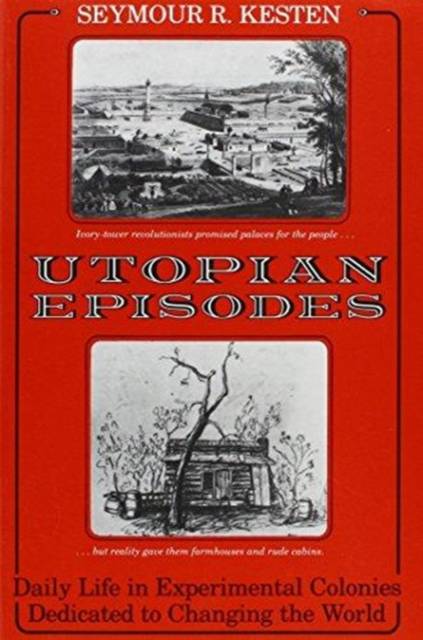
Door een staking bij bpost kan je online bestelling op dit moment iets langer onderweg zijn dan voorzien. Dringend iets nodig? Onze winkels ontvangen jou met open armen!
- Afhalen na 1 uur in een winkel met voorraad
- Gratis thuislevering in België vanaf € 30
- Ruim aanbod met 7 miljoen producten
Door een staking bij bpost kan je online bestelling op dit moment iets langer onderweg zijn dan voorzien. Dringend iets nodig? Onze winkels ontvangen jou met open armen!
- Afhalen na 1 uur in een winkel met voorraad
- Gratis thuislevering in België vanaf € 30
- Ruim aanbod met 7 miljoen producten
Zoeken
Utopian Episodes
Daily Life in Experimental Colonies Dedicated to Changing the World
Seymour R Kesten
€ 30,95
+ 61 punten
Omschrijving
Decades before the communes of the sixties, nineteenth-century radicals set up isolated colonies where they hoped to insulate themselves from a corrupt mainstream America. Throughout the country experimental utopian settlements promised to fulfill the lives of ordinary citizens through abundance, equality, and free education. Utopian Episodes tells why these early, freethinking rebels could never fully achieve their goals, but how their legacy has become an integral part of today's movement for social reform.
Seymour Kesten focuses on three of the most renowned colonies: New-Harmony, Indiana; Brook Farm, Massachusetts; and Icarian Communities in Iowa and Illinois. Many more experimental groups are also discussed, including Alphadelphia in Michigan, Fruitlands and Hopedale in Massachusetts, Ohio Phalanx, and La Reunion (now Dallas, Texas). Unlike other studies on similar groups, Kesten's book gives us a unique insider's view into the day-to-day lives of these American radicals and thus provides a study of the human spirit. He lets us see utopian life through the eyes of those who knew it firsthand. A look at individuals' activities, work, dress, and food brings us into the realm of their souls. He draws on rare memoirs and early accounts (some published here for the first time) by well-known participants, including A. Bronson Alcott, Horace Greeley, and George Ripley, as well as relatively unknown colonists, such as Albert Brisbane, John Dwight, Elijah Grant, and Amelia Russell. The book spans the rebirth of an intellectual movement and explores the newspapers, literature, poetry, and music of its social consciousness. Education for the masses was the essence of the utopian process, for it alone, they believed, would regenerate a civic-minded, compassionate society. Ultimately, they would eradicate evil, which was the goal of every colony.Specificaties
Betrokkenen
- Auteur(s):
- Uitgeverij:
Inhoud
- Aantal bladzijden:
- 358
- Taal:
- Engels
- Reeks:
Eigenschappen
- Productcode (EAN):
- 9780815603818
- Verschijningsdatum:
- 1/05/1996
- Uitvoering:
- Paperback
- Formaat:
- Trade paperback (VS)
- Afmetingen:
- 151 mm x 226 mm
- Gewicht:
- 526 g

Alleen bij Standaard Boekhandel
+ 61 punten op je klantenkaart van Standaard Boekhandel
Beoordelingen
We publiceren alleen reviews die voldoen aan de voorwaarden voor reviews. Bekijk onze voorwaarden voor reviews.











